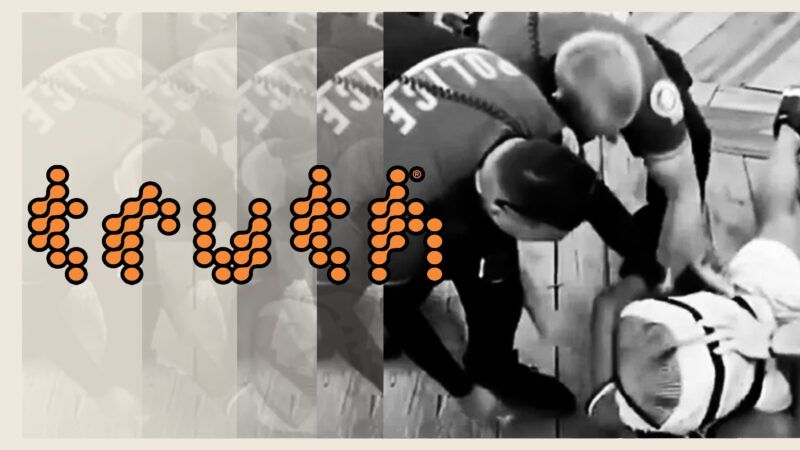Don't Be Surprised When Stupid Laws Are Maintained With Force
The Campaign for Tobacco-Free Kids railed against cops for enforcing the same kind of anti-vaping rule they help pass.

"We are horrified and outraged by the incident of police violence in Ocean City, MD, this weekend," reads a statement from an advocacy group, drafted in response to the viral videos of cops using force on vaping teens. "There is absolutely no place for violence and abuse in enforcing tobacco laws."
Such expressions were commonplace as the clips ripped their way through social media. Yet the above press blurb was particularly rich. It came from the Campaign for Tobacco-Free Kids, an organization that has fought to put in place the very same sorts of laws that they now regret to see enforced.
"Our communities cannot be safe and healthy when police often choose to enforce these laws with violence, often disproportionately against Black and Brown people," they continued.
Unfortunately for the campaign, there is essentially one way the state upholds the laws they enact: through men and women with guns. Politicians, then, must be comfortable with the fact that any rules they pass will at some point be maintained via force, and, yes, violence.
Certain crimes merit that treatment. Consider any number of offenses where the actions of an alleged perpetrator directly endanger or infringe on the rights of those around them: murder, rape, assault, arson, property crimes. The core job of the government as laid out in the Constitution is to protect the citizens from such offenses whenever possible.
Yet the state's purview has grown to encompass much more, charged with stamping out victimless offenses like drug use, prostitution, and one of the newest moral panics: vaping. Lawmakers may disagree with those personal choices—some of which may be deleterious to the health of the individual—but the government must weigh the costs and benefits of armed state agents policing people's habits.
Vaping isn't worth the militaristic approach. As I wrote yesterday, there are plenty of additional costs that come with prohibition. Foremost is that it spurs violence, as people are resigned to black markets and are prohibited from litigating anything in public, allowing organized crime to take flight. The community pays the price.
That hasn't stopped a bipartisan effort to dictate who is allowed to vape and how they're allowed to do it, despite data that show such rules funnel people toward cigarettes—a more dangerous product.
The efficacy of any proposed ban is relevant. More important in the context of this conversation, though, is the collateral damage incurred by enforcement. Take the kids in Perth Amboy, New Jersey, who had their bicycles seized after they were confronted by officers for minor traffic infractions and for failing to register their bikes with the city. One was arrested. Those sorts of interactions damage trust in the police and can turn deadly.
The Campaign for Tobacco-Free Kids positions their work as "protect[ing] children and sav[ing] lives." I have no doubt they believe that to be true. But when they use the state as their lever of choice to accomplish that end, then they shouldn't be surprised when law enforcement officers do what they're told: enforce the law.


Show Comments (65)